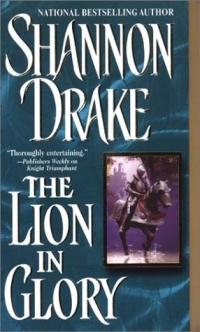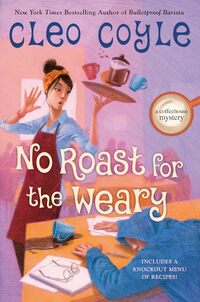 THE COWBOY'S EASTER SURPRISE |
 March Into Romance: New Releases to Fall in Love With! |

Purchase
Graham Family #5 Romance Historical Excerpt of The Lion in Glory by Shannon DrakeThe king is dead. Long live the king! And thus it had been for centuries. On July 11, 1307, having determined in his fury that he would take to his horse himself and lead his troops against the wayward Robert Bruce of Scotland, Edward I expired. And despite the ravages of age that had begun to tear at the mighty monarch, a very great king, indeed, had died. Known as Longshanks, Edward I had been the epitome of the image of royalty: tall, a warrior king, a gleaming Plantagenet, a man who had earned respect and admiration through his strength and prowess, and the determination of his will. Wise, wily, and cunning, brutal to his enemies, a man who had brought England to law and power, he had reigned long and given England a position of prominence in Europe that could not be disputed by any man. The king is dead. His people mourned. His enemies rejoiced. Long live the king. The father was not the son, though he was his father's namesake. Edward II began his rule by ignoring his father's deathbed request that his bones be carded with the vanguard marching against the Scots, and that they be carded into the war with the Scots until those unruly barbarians were brought to heel, completely subjugated, ready to bow to their overlord, the English monarch. Edward the father was delivered into Waltham Abbey to await a more regal burial, and the new king immediately called his favorite back to his side, a man greatly disliked by his nobles, Piers Gaveston. He rode against the Scots, but at his own pace. He rode to the borders of Ayrshire, and then retreated for want of supplies, never striking a single blow against the Scots. Whereas England had just lost one of her mightiest monarchs ever, to be replaced by a frivolous mind with personal pleasures of a far greater import than the power of his realm, Scotland had been nurturing a very different man. Upon claiming the throne of Scotland, Robert Bruce had fought for the right to be recognized as king. He had been reduced to running through the forests of Scotland with no more than a few men, while many of the great barons of the land remained against him, and he would have forever as an enemy the family of John Comyn, the Red, dead due to the king, whether it had been Robert Bruce to strike the fatal blow, or whether the deed had been done by his followers. But in his desperate days, he learned. He had known the nobility and peerage of his land, and that of England. In his early days of penury and desperation, he learned the mettle of the common man of Scotland, and he grew in the wisdom of his most simple folk. There were lessons to be had in those days which he would never forget Power did not always come with strength of arms; it was in the hearts and souls of his countrymen, and it was for a glory greater than gold, power, property or prestige that they would fight. It was for the more elusive glories of freedom and nationality. He proved himself before his people, risking his own life, waging his own mighty battles--as the old English king had once done--and with each passing day, became the warrior king so desperately needed by a country too long forced to her knees. The price he paid for his crown was heavy: family members executed, his wife and child taken by the English to be held through many long years. Despite the cruelties done to him and the strengths that he had gained, he remained throughout his days of hardship and beyond an exceptionally merciful man for his day. He gained his power slowly. Step by step. And just as he quickly decided on a path of benevolence, so, as well, he never forgot those who supported him, especially in the early days, and in time, those who rode by his side throughout were richly rewarded. The Scottish king had another policy. Well aware that even with a weak leader now at the head of the great English force, the power of the English far outweighed his own. He made it a point never to engage in a pitched battle with the English. The Scotsmen, accustomed to a fight in which they must constantly attack and disappear, were experts at strike and run assaults. They knew their land as no others couldn the forests, waterways, valleys, mountains and hills. The death of Edward I bought the Scots something they dearly needed. Time. And time became the greatest ally of Robert Bruce. At the death of the great Plantagenet king, he was still the leader of little more than outlaw bands. His first order of business was to subdue the great barons of Scotland who stood against him. He proved not only his courage, but that he was a brilliant strategist, capable of using any weapon at hand, be that weapon tact and diplomacy, or an onslaught of arms. In a matter of years, he had begun to rally his kingdom around him. Edward II, reputed to be large and as fine in appearance as his family name would warrant, was busily engaged in keeping his dear companion, Piers Gaveston, at his side-- and keeping those who heartily resented Gaveston at bay. Matters came to a head and Gaveston was banished to Ireland. At this time, Edward called for an army to invade Scotland. He came with all the fantastic trappings of war with which his father had ridden. He trampled the lowlands, and planned to wage battle for the heart of the country. But Bruce would not bring his army for a pitched battle. He watched the English--and then swept down upon the northern counties of his enemies. Edward II did nothing to support his desperate barons. And so it was that the English lords of those northern counties turned to a desperate measure--they sent forth envoys to pay the Scottish king to leave them in peace. And thus began a period in which Robert Bruce, so lately no more than an outlaw king with a forest bed, began to turn the tide against his enemies. Excerpt from The Lion in Glory by Shannon Drake |
|
| |||
|
||||



 © 2003-2025
© 2003-2025